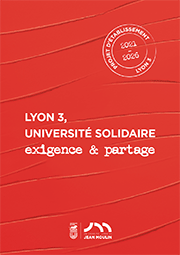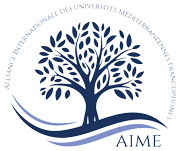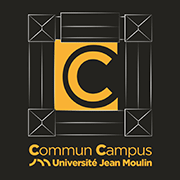AccueilRechercheProgrammes et productions scientifiquesThèsesThèses soutenuesThèses soutenues - 2006-2021Thèses soutenues - 2016
-
Partager cette page
- Recherche,
TESTARD Christophe
Pouvoir de décision unilatérale de l’administration et démocratie administrative
Publié le 19 décembre 2016 – Mis à jour le 20 décembre 2018
Thèse en Droit mention droit public soutenue le 29 novembre 2016.
Le pouvoir de décision unilatérale de l’administration entretient avec la démocratie administrative des rapports ambivalents. Appréhendée comme l’ensemble des règles qui tendent à la participation des administrés à l’élaboration des décisions administratives, la démocratie administrative est de prime abord contradictoire avec la dimension de contrainte et de commandement que l’unilatéralité manifeste. Faisant figure d’oxymore, elle s’est pourtant imposée à un pouvoir dont la légitimité semblait remise en cause. Le principe d’une participation des administrés irrigue désormais, à travers des procédés multiples et utilisant les nouvelles technologies, la relation entre le « public » et l’administration : la démocratie administrative a saisi le pouvoir de décision unilatérale.
Pourtant, loin de remettre en cause ce pouvoir, la démocratie administrative vient en réalité le conforter. En se limitant à une ouverture du processus d’élaboration de certaines décisions administratives, le droit actuel de la participation des administrés n’atteint pas les caractères mêmes de l’unilatéralité. Les participants n’accèdent que très exceptionnellement au rang de coauteurs et leur influence sur le contenu de la décision est limitée. La sollicitation du public s’avère être un instrument de légitimation du volontarisme de la puissance publique. Avec le renfort du juge administratif, la participation des administrés demeure un simple moment procédural. La démocratie administrative se révèle être en définitive une notion malléable, dont l’administration tire profit dans l’exercice de son pouvoir de décision unilatérale.
The unilateral decision-making power of the administration maintains an ambivalent relationship with the administrative democracy. Understood as the set of rules which tend to the governed participation in the development of administrative decisions, administrative democracy is prima facie contradictory to the dimensions of constraint and command that are part of unilaterality. Standing as an oxymoron, it has yet imposed on a power which legitimacy seemed compromised. The principle of participation of the governed irrigates now, across multiple processes and through the use of new technologies, the relationship between the "public" and the administration: the administrative democracy has seized the power of unilateral decision.
Yet far from questioning this power, the administrative democracy has actually strengthened it. Limiting itself to opening up the process of drafting of certain administrative decisions, the current right of participation of the governed does not reach the characters of unilateralism. Participants only access exceptionally to the rank of co-authors and their influence on the content of the decision remains limited. Public solicitation proves to be a legitimizing instrument of the voluntarism of the public authority. With the reinforcement of the administrative judge, citizen’s participation remains a simple procedural time. The administrative democracy ultimately proves to be a malleable concept, of which the administration benefits in exercising its power of unilateral decision.
Pourtant, loin de remettre en cause ce pouvoir, la démocratie administrative vient en réalité le conforter. En se limitant à une ouverture du processus d’élaboration de certaines décisions administratives, le droit actuel de la participation des administrés n’atteint pas les caractères mêmes de l’unilatéralité. Les participants n’accèdent que très exceptionnellement au rang de coauteurs et leur influence sur le contenu de la décision est limitée. La sollicitation du public s’avère être un instrument de légitimation du volontarisme de la puissance publique. Avec le renfort du juge administratif, la participation des administrés demeure un simple moment procédural. La démocratie administrative se révèle être en définitive une notion malléable, dont l’administration tire profit dans l’exercice de son pouvoir de décision unilatérale.
The unilateral decision-making power of the administration maintains an ambivalent relationship with the administrative democracy. Understood as the set of rules which tend to the governed participation in the development of administrative decisions, administrative democracy is prima facie contradictory to the dimensions of constraint and command that are part of unilaterality. Standing as an oxymoron, it has yet imposed on a power which legitimacy seemed compromised. The principle of participation of the governed irrigates now, across multiple processes and through the use of new technologies, the relationship between the "public" and the administration: the administrative democracy has seized the power of unilateral decision.
Yet far from questioning this power, the administrative democracy has actually strengthened it. Limiting itself to opening up the process of drafting of certain administrative decisions, the current right of participation of the governed does not reach the characters of unilateralism. Participants only access exceptionally to the rank of co-authors and their influence on the content of the decision remains limited. Public solicitation proves to be a legitimizing instrument of the voluntarism of the public authority. With the reinforcement of the administrative judge, citizen’s participation remains a simple procedural time. The administrative democracy ultimately proves to be a malleable concept, of which the administration benefits in exercising its power of unilateral decision.
Mots-Clés : acte administratif unilatéral – pouvoir de décision unilatérale – démocratie administrative – principe de participation – procédure administrative non contentieuse – amélioration des relations administration/administrés – concertation – association du public.
Keywords : unilateral administrative act – unilateral decision-making – administrative democracy – principle of participation – administrative procedure – improvement of governed / administration relationships – dialogue – public involvement.
Directrice de thèse : Sylvie CAUDAL
Keywords : unilateral administrative act – unilateral decision-making – administrative democracy – principle of participation – administrative procedure – improvement of governed / administration relationships – dialogue – public involvement.
Directrice de thèse : Sylvie CAUDAL
Membres du jury :
- Sylvie CAUDAL, Directrice de thèse, Professeure des universités, Université Jean Moulin Lyon 3,
- Caroline CHAMARD-HEIM, Professeure des universités, Université Jean Moulin Lyon 3,
- Bénédicte DELAUNAY, Rapporteur, Professeure des universités émérite, Université François-Rabelais de Tours,
- Benoît PLESSIX, Professeur à l’Université Paris II Panthéon-Assas,
- Sébastien SAUNIER, Rapporteur, Professeur des universités, Université Toulouse 1 Capitole.
- Sylvie CAUDAL, Directrice de thèse, Professeure des universités, Université Jean Moulin Lyon 3,
- Caroline CHAMARD-HEIM, Professeure des universités, Université Jean Moulin Lyon 3,
- Bénédicte DELAUNAY, Rapporteur, Professeure des universités émérite, Université François-Rabelais de Tours,
- Benoît PLESSIX, Professeur à l’Université Paris II Panthéon-Assas,
- Sébastien SAUNIER, Rapporteur, Professeur des universités, Université Toulouse 1 Capitole.
Président du jury : Benoît PLESSIX
Equipe d'accueil : Équipe de droit public
Documentation
Mise à jour : 20 décembre 2018







